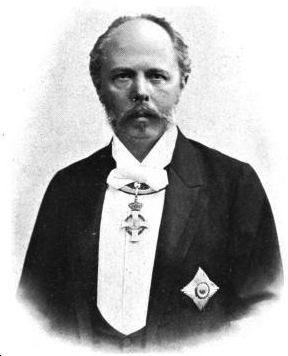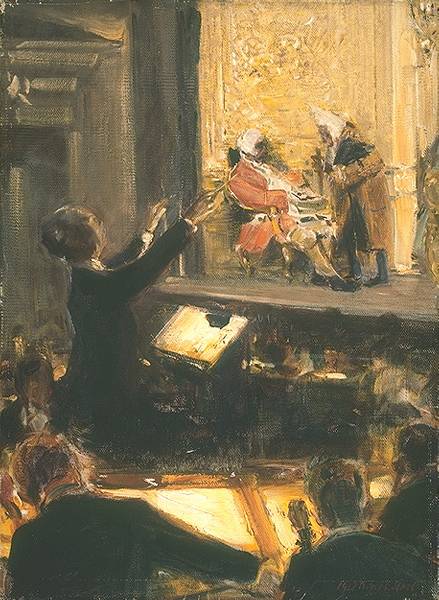Ernst Von Schuch on:
[Wikipedia]
[Google]
[Amazon]
 Ernst Edler von Schuch, born Ernst Gottfried Schuch (23 November 1846,
Ernst Edler von Schuch, born Ernst Gottfried Schuch (23 November 1846,
 * A. Eaglefield-Hull, ''A Dictionary of Modern Music and Musicians'' (Dent, London 1924)
* P. Sakolowsky, ''E. Schuch'' (1901).
* Gerhard M. Dienes (Ed.), „mit mir...“ Ernst von Schuch (1846–1914). Ein Grazer als Generalmusikdirektor in Dresden. Exhibition Catalogue 1999. (Graz City Museum, Graz 1999),
* E. Krause, "Richard Strauss, Ernst von Schuch und Dresden." In: Blätter der Staatstheater Dresden, 1963/64
* ''Richard Strauss/Ernst von Schuch: Richard Strauss - Ernst von Schuch. Ein Briefwechsel'' (An exchange of letters). Edited by Gabriella Hanke Knaus. (= Veröffentlichungen der Richard-Strauss-Gesellschaft (Offerings of the Richard Strauss Society); Band 16). (Henschel-Verlag, Berlin 1999).
* Große Kreisstadt Radebeul (Ed.), ''Stadtlexikon Radebeul'' (Historisches Handbuch für die Lößnitz, 2005).
* A. Eaglefield-Hull, ''A Dictionary of Modern Music and Musicians'' (Dent, London 1924)
* P. Sakolowsky, ''E. Schuch'' (1901).
* Gerhard M. Dienes (Ed.), „mit mir...“ Ernst von Schuch (1846–1914). Ein Grazer als Generalmusikdirektor in Dresden. Exhibition Catalogue 1999. (Graz City Museum, Graz 1999),
* E. Krause, "Richard Strauss, Ernst von Schuch und Dresden." In: Blätter der Staatstheater Dresden, 1963/64
* ''Richard Strauss/Ernst von Schuch: Richard Strauss - Ernst von Schuch. Ein Briefwechsel'' (An exchange of letters). Edited by Gabriella Hanke Knaus. (= Veröffentlichungen der Richard-Strauss-Gesellschaft (Offerings of the Richard Strauss Society); Band 16). (Henschel-Verlag, Berlin 1999).
* Große Kreisstadt Radebeul (Ed.), ''Stadtlexikon Radebeul'' (Historisches Handbuch für die Lößnitz, 2005).
{{DEFAULTSORT:Schuch, Ernst von 1846 births 1914 deaths German conductors (music) German male conductors (music) Musicians from Graz 19th-century German musicians 19th-century German male musicians Edlers of Austria
 Ernst Edler von Schuch, born Ernst Gottfried Schuch (23 November 1846,
Ernst Edler von Schuch, born Ernst Gottfried Schuch (23 November 1846, Graz
Graz (; sl, Gradec) is the capital city of the Austrian state of Styria and second-largest city in Austria after Vienna. As of 1 January 2021, it had a population of 331,562 (294,236 of whom had principal-residence status). In 2018, the popul ...
– 10 May 1914, Niederlößnitz/Radebeul
Radebeul ( hsb, Radobyle) is a town (''große Kreisstadt'') in the Elbe valley in the district of Meißen (district), Meißen in Saxony, Germany, a suburb of Dresden. It is well known for its viticulture, a museum dedicated to writer Karl May ...
Dresden
Dresden (, ; Upper Saxon: ''Dräsdn''; wen, label=Upper Sorbian, Drježdźany) is the capital city of the German state of Saxony and its second most populous city, after Leipzig. It is the 12th most populous city of Germany, the fourth larg ...
) was an Austrian conductor who became famous through his working collaborations with Richard Strauss
Richard Georg Strauss (; 11 June 1864 – 8 September 1949) was a German composer, conductor, pianist, and violinist. Considered a leading composer of the late Romantic and early modern eras, he has been described as a successor of Richard Wag ...
at the Dresden Court Opera.
Schuch first studied law but then turned to music, trained at first by E. Stolz. He studied in Graz and later in Vienna
en, Viennese
, iso_code = AT-9
, registration_plate = W
, postal_code_type = Postal code
, postal_code =
, timezone = CET
, utc_offset = +1
, timezone_DST ...
, briefly with Felix Otto Dessoff
Felix Otto Dessoff (14 January 1835 – 28 October 1892) was a German conductor and composer.
Biography
Dessoff was born to a Jewish family in Leipzig; his father was a cloth merchant. His musical talent was recognized by Franz Liszt, who then ...
, and started his conducting career in 1867 as Kapellmeister at Lobe's Theatre in Breslau while the Breslau Opera was out of action following a fire.
Coincidentally, a father and son with the same family name Schuch had built and run the first opera theatre in Breslau 120 years earlier:North German Opera in the Age of Goethe - Page 83 Thomas Bauman - 1985 "Breslau in Silesia offered German companies an attractive alternative to Leipzig or Berlin. Like them, it could support a company from autumn ... the charming name Theater on the Cold Ashes. Schuch brought the first Hiller operas to Breslau in 1770, and his successor Johann Christian Waser introduced many more. In addition, Breslau saw the premieres of three new operas of its own in 1771 and 1772. "
There followed engagements in Würzburg
Würzburg (; Main-Franconian: ) is a city in the region of Franconia in the north of the German state of Bavaria. Würzburg is the administrative seat of the ''Regierungsbezirk'' Lower Franconia. It spans the banks of the Main River.
Würzburg is ...
(1868–1870), Graz (1870/1871) and Basle
, french: link=no, Bâlois(e), it, Basilese
, neighboring_municipalities= Allschwil (BL), Hégenheim (FR-68), Binningen (BL), Birsfelden (BL), Bottmingen (BL), Huningue (FR-68), Münchenstein (BL), Muttenz (BL), Reinach (BL), Riehen (BS), ...
, until he was employed in 1872 by Pollini's Italian Opera for Dresden. There in 1872 he became music director at the Court Opera, from 1873 Royal Kapellmeister with Julius Rietz
August Wilhelm Julius Rietz (28 December 1812 – 12 September 1877) was a German composer, conductor, cellist, and teacher. His students included Woldemar Bargiel, Salomon Jadassohn, Arthur O'Leary, and (by far the most celebrated) Sir Arthur ...
, later with Franz Wüllner
Franz Wüllner (28 January 1832 – 7 September 1902) was a German composer and conductor. He led the premieres of Wagner's ''Das Rheingold'' and ''Die Walküre'', but was much criticized by Wagner himself, who greatly preferred the more celebrate ...
. In 1878, he was appointed Royal Professor. In 1882 he undertook the direction of the Court Opera with the title of privy councillor, and in 1889 became its general music director. From 1882 onward, he lived in Niederlößnitz in the Weintraubenstraße (in 1883 renamed at his own suggestion as Schuchstraße 15/17). In 1898, he was ennobled by the Austrian emperor and in 1899 was appointed to the Saxon Confidential Privy Council. His period of influence is known as the Schuch era in operatic performing history.
Tours as guest conductor in Berlin
Berlin ( , ) is the capital and largest city of Germany by both area and population. Its 3.7 million inhabitants make it the European Union's most populous city, according to population within city limits. One of Germany's sixteen constitue ...
, Munich
Munich ( ; german: München ; bar, Minga ) is the capital and most populous city of the States of Germany, German state of Bavaria. With a population of 1,558,395 inhabitants as of 31 July 2020, it is the List of cities in Germany by popu ...
, Vienna and Paris
Paris () is the capital and most populous city of France, with an estimated population of 2,165,423 residents in 2019 in an area of more than 105 km² (41 sq mi), making it the 30th most densely populated city in the world in 2020. S ...
aside, he remained committed to Dresden until 1914, and made its opera house there into one of the leading musical stages of Europe. He created a surpassing ensemble and enlarged the orchestra to make it one of the greatest in the world. Specializing in the music-dramas of Wagner
Wilhelm Richard Wagner ( ; ; 22 May 181313 February 1883) was a German composer, theatre director, polemicist, and conductor who is chiefly known for his operas (or, as some of his mature works were later known, "music dramas"). Unlike most op ...
, he also led the original productions of the Richard Strauss operas ''Feuersnot
' (''Need for (or lack of) fire)'', Op. 50, is a ''Singgedicht'' (sung poem) or opera in one act by Richard Strauss. The German libretto was written by Ernst von Wolzogen, based on J. Ketel's report "Das erloschene Feuer zu Audenaerde". It was ...
'' (1901), ''Salome
Salome (; he, שְלוֹמִית, Shlomit, related to , "peace"; el, Σαλώμη), also known as Salome III, was a Jewish princess, the daughter of Herod II, son of Herod the Great, and princess Herodias, granddaughter of Herod the Great, an ...
'' (1905), '' Elektra'' (1909) and ''Der Rosenkavalier
(''The Knight of the Rose'' or ''The Rose-Bearer''), Op. 59, is a comic opera in three acts by Richard Strauss to an original German libretto by Hugo von Hofmannsthal. It is loosely adapted from the novel ''Les amours du chevalier de Faublas'' ...
'' (1911) as well as the first German productions of operas by Puccini
Giacomo Puccini (Lucca, 22 December 1858Bruxelles, 29 November 1924) was an Italian composer known primarily for his operas. Regarded as the greatest and most successful proponent of Italian opera after Verdi, he was descended from a long lin ...
and Mascagni, and the Dresden première of Wagner's ''Parsifal
''Parsifal'' ( WWV 111) is an opera or a music drama in three acts by the German composer Richard Wagner and his last composition. Wagner's own libretto for the work is loosely based on the 13th-century Middle High German epic poem ''Parzival'' ...
'' on 24 March 1914, his last new production before his death on 10 May. Also highly valued as a nonoperatic conductor, he was particularly known in the concert hall for his renditions of the orchestral works of Felix Draeseke
Felix August Bernhard Draeseke (7 October 1835 – 26 February 1913) was a composer of the "New German School" admiring Franz Liszt and Richard Wagner. He wrote compositions in most forms including eight operas and stage works, four symphonies, ...
and Strauss.
He married coloratura soprano Clementine von Schuch-Proska
Clementine Edle von Schuch-Proska, ''née'' Procházka, (12 February 1850 – 8 June 1932) was an Austrian operatic coloratura soprano, who became an audience favourite and an honorary member of the Dresden Court Opera as Kammersängerin.
L ...
(Klementine Procházka) (1850-1932), who became an honorary member of Dresden's Royal Theatre Company. Their daughter Liesel von Schuch The name Liesel is short for Elizabeth. The name was most popular during the 17th century.
Liesel can also refer to:
*Liesl Von Trapp, a character in ''The Sound of Music''
*Liesel Meminger, a character in The Book Thief
* Liesel Matthews (born Lie ...
sang in Dresden (from 1914 on) and Vienna.
Literature
 * A. Eaglefield-Hull, ''A Dictionary of Modern Music and Musicians'' (Dent, London 1924)
* P. Sakolowsky, ''E. Schuch'' (1901).
* Gerhard M. Dienes (Ed.), „mit mir...“ Ernst von Schuch (1846–1914). Ein Grazer als Generalmusikdirektor in Dresden. Exhibition Catalogue 1999. (Graz City Museum, Graz 1999),
* E. Krause, "Richard Strauss, Ernst von Schuch und Dresden." In: Blätter der Staatstheater Dresden, 1963/64
* ''Richard Strauss/Ernst von Schuch: Richard Strauss - Ernst von Schuch. Ein Briefwechsel'' (An exchange of letters). Edited by Gabriella Hanke Knaus. (= Veröffentlichungen der Richard-Strauss-Gesellschaft (Offerings of the Richard Strauss Society); Band 16). (Henschel-Verlag, Berlin 1999).
* Große Kreisstadt Radebeul (Ed.), ''Stadtlexikon Radebeul'' (Historisches Handbuch für die Lößnitz, 2005).
* A. Eaglefield-Hull, ''A Dictionary of Modern Music and Musicians'' (Dent, London 1924)
* P. Sakolowsky, ''E. Schuch'' (1901).
* Gerhard M. Dienes (Ed.), „mit mir...“ Ernst von Schuch (1846–1914). Ein Grazer als Generalmusikdirektor in Dresden. Exhibition Catalogue 1999. (Graz City Museum, Graz 1999),
* E. Krause, "Richard Strauss, Ernst von Schuch und Dresden." In: Blätter der Staatstheater Dresden, 1963/64
* ''Richard Strauss/Ernst von Schuch: Richard Strauss - Ernst von Schuch. Ein Briefwechsel'' (An exchange of letters). Edited by Gabriella Hanke Knaus. (= Veröffentlichungen der Richard-Strauss-Gesellschaft (Offerings of the Richard Strauss Society); Band 16). (Henschel-Verlag, Berlin 1999).
* Große Kreisstadt Radebeul (Ed.), ''Stadtlexikon Radebeul'' (Historisches Handbuch für die Lößnitz, 2005).
References
External links
* Literature of and about Ernst von Schuch in the Catalogue of the German National Librar{{DEFAULTSORT:Schuch, Ernst von 1846 births 1914 deaths German conductors (music) German male conductors (music) Musicians from Graz 19th-century German musicians 19th-century German male musicians Edlers of Austria